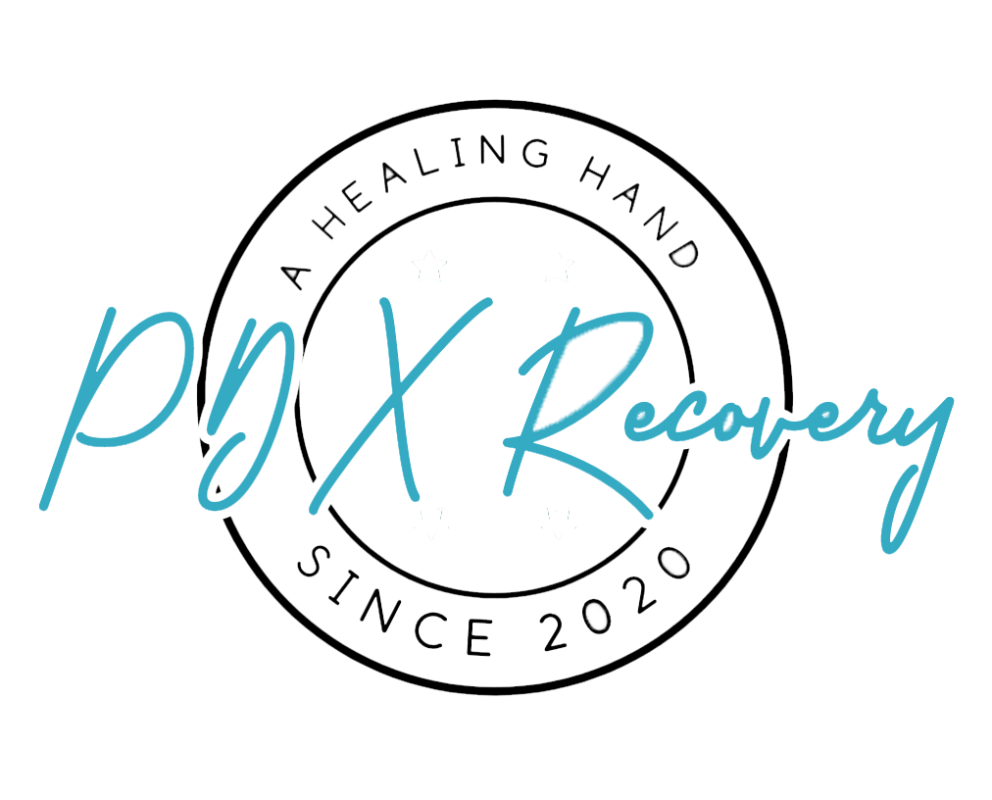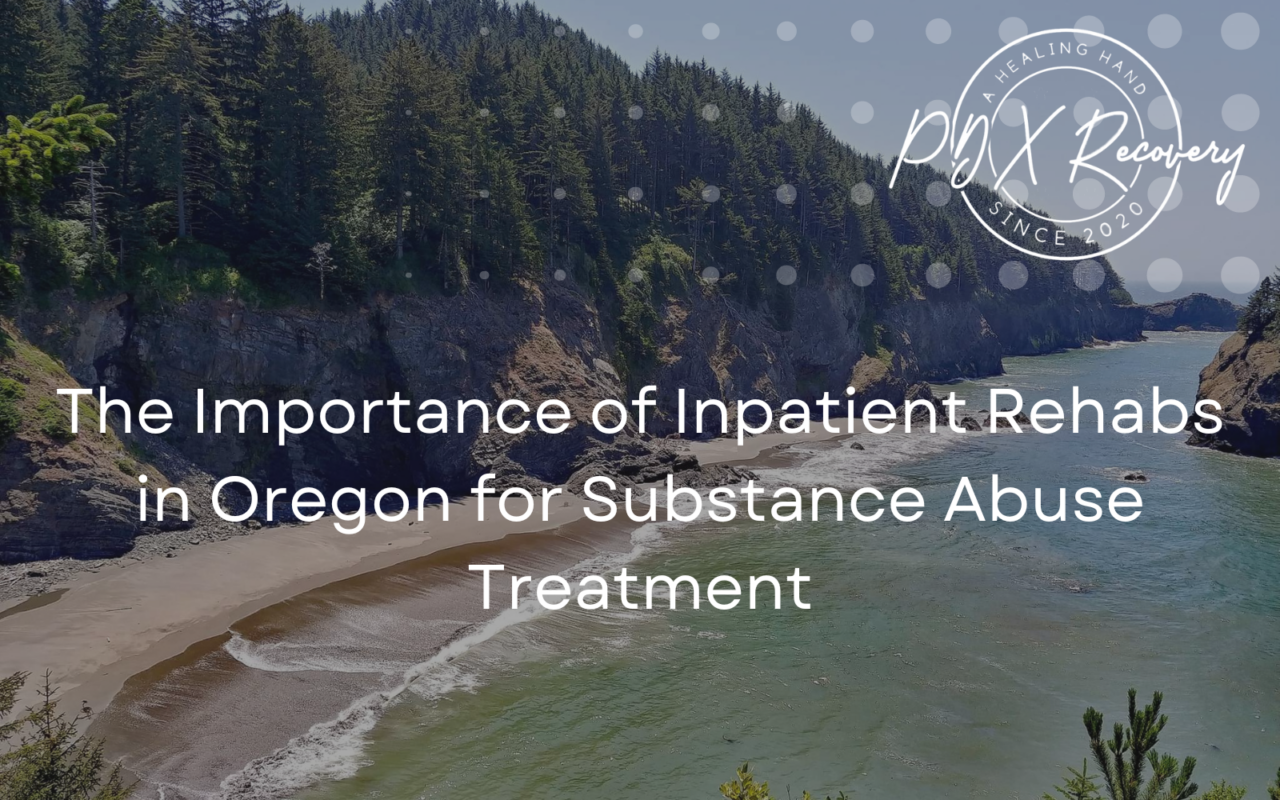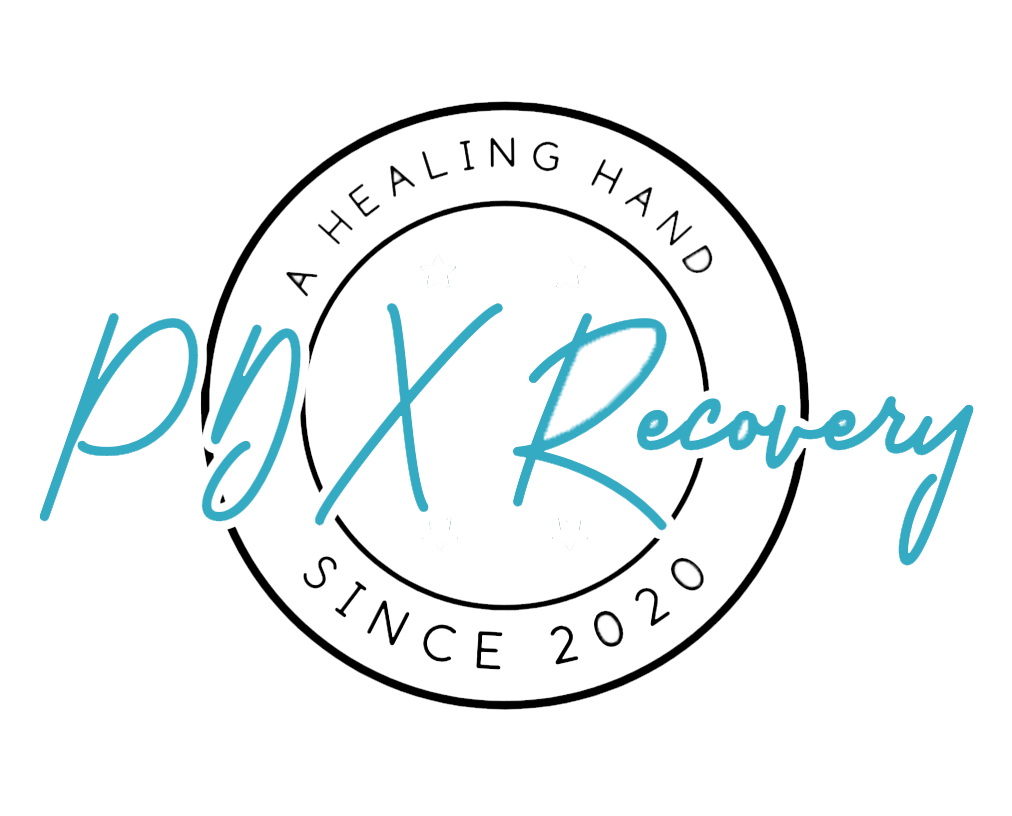Substance abuse is a significant and multifaceted issue that impacts not only individuals but also families and entire communities across the United States. According to the National Survey on Drug Use and Health, in 2017, 19.7 million Americans aged 12 and older faced challenges related to substance use disorders. This staggering statistic underscores the pervasive nature of the problem, revealing its deep roots in society. Oregon exemplifies this troubling trend, ranking among the highest states in both illicit drug use and prescription drug misuse. The repercussions of substance abuse are extensive, leading to severe health complications, legal challenges, and strained relationships. For support, consider inpatient rehabs in Oregon.
Why Inpatient Rehabs in Oregon are Vital for Substance Abuse Treatment
However, there is hope for those grappling with these issues. In Oregon, treatment options, including inpatient rehabilitation programs, are readily accessible for individuals battling addiction. These programs provide a structured and intensive environment where individuals can receive comprehensive care tailored to their unique needs. Inpatient rehabs not only offer medical treatment but also encompass psychological support, counseling, and a variety of therapeutic activities designed to foster recovery. This holistic approach is essential to addressing the complex nature of addiction.
This blog explores the critical role of inpatient rehabs in Oregon’s substance abuse treatment landscape, highlighting their significance in confronting this widespread and urgent issue. By illuminating available resources and sharing success stories, we aim to inspire those in need to seek help and support on their journey to recovery.
Understanding the Need for Inpatient Rehabs in Oregon
Oregon has long grappled with above-average rates of drug use and opioid-related overdoses compared to other states in the U.S. According to the Centers for Disease Control and Prevention (CDC), the state ranks 10th in the nation for drug overdose deaths, with a concerning rate of 15 per 100,000 people. This alarming statistic underscores the urgent need for effective substance abuse treatment options, as the effects of addiction ripple through families and communities. Inpatient rehabilitation centers are crucial in addressing this crisis, offering a safe and supportive environment where individuals can confront their addiction.
These facilities provide structured programs that incorporate medical supervision, counseling, and a range of therapeutic activities designed to help patients understand the root causes of their addiction and cultivate healthy coping strategies. This comprehensive approach is especially vital in Oregon, where many individuals face addiction yet lack access to adequate treatment due to financial limitations, insufficient insurance coverage, or scarce local resources.
Comprehensive Care for Addiction
Inpatient rehabs in Oregon offer a comprehensive approach to substance abuse treatment. The programs typically include a combination of therapy, medication-assisted treatment, and other evidence-based practices tailored to the individual’s needs. This holistic approach addresses not only the physical aspects of addiction but also the psychological and emotional factors that contribute to it. Therapy sessions, both group and individual, provide individuals with the tools they need to understand their addiction and develop healthy coping mechanisms for managing triggers and cravings. Medication-assisted treatment, when appropriate, can also aid in reducing withdrawal symptoms and decreasing the likelihood of relapse.
Many inpatient rehabs in Oregon offer specialized programs for specific demographics such as women-only or LGBTQ+ individuals. These specialized programs address the unique challenges faced by these groups and provide a safe and inclusive environment for recovery.
24/7 Support During Recovery
A crucial aspect of inpatient rehabilitation is the 24/7 support provided to individuals, creating a nurturing environment that promotes recovery. This level of care is especially important during the initial stages when individuals may experience severe withdrawal symptoms or find it challenging to adapt to life without drugs or alcohol. In an inpatient setting, a dedicated team of medical professionals—including doctors, nurses, and therapists—is always available to monitor and assist individuals throughout the detoxification process. Their constant presence not only ensures safety but also significantly increases the chances of successful treatment completion, as immediate help is readily accessible for any physical or emotional difficulties that may arise.
Moreover, the camaraderie shared among peers facing similar challenges can greatly enhance the recovery journey. Inpatient rehab facilities foster an atmosphere where individuals feel comfortable sharing their struggles and triumphs, thereby alleviating feelings of isolation and shame commonly associated with addiction. These environments create opportunities for patients to forge strong connections, cultivating a sense of solidarity and understanding that is vital for long-term sobriety. Engaging in group therapy sessions and social activities not only enriches the recovery experience but also establishes a support network that can extend beyond the rehab facility, providing ongoing encouragement and accountability as individuals reintegrate into everyday life.
The Benefits of a Structured Environment
One of the primary advantages of inpatient rehabilitation is the structured environment it provides, which is crucial for the recovery process. Addiction often brings chaos and disruption to an individual’s life, leading to unstable routines and unhealthy behaviors. This unpredictability can impede a person’s ability to focus on healing and achieving long-term wellness. In an inpatient setting, individuals are removed from their everyday environments and stressors, such as work pressures, social obligations, and triggers for relapse. This separation enables them to fully immerse themselves in their recovery journey, free from the distractions of daily life.
Additionally, inpatient rehabs offer a meticulously curated schedule that includes meals, therapy sessions, educational workshops, recreational activities, and other vital treatment components. This structured routine not only promotes discipline but also encourages the formation of new, healthier habits. For many, this sense of order is especially beneficial, instilling a feeling of stability and predictability that may have been lacking before treatment. Group therapy sessions foster a sense of community, allowing individuals to share their experiences and provide mutual support. Ultimately, the combination of a nurturing environment and a well-organized daily schedule creates an ideal space for individuals to commit themselves to recovery and personal growth.
Aftercare Services for Continued Support
The support offered by inpatient rehabilitation programs extends well beyond the completion of treatment. Many facilities provide comprehensive aftercare services that are vital for a smooth transition back to daily life. These services include alumni programs, sober living homes, and ongoing counseling, all designed to help individuals maintain their sobriety after leaving the rehab environment. Alumni programs, for example, create a sense of community among graduates, allowing them to share experiences and support each other as they navigate their recovery journeys. Sober living homes offer a structured and supportive environment, which can be particularly beneficial for those lacking a stable home life or needing a gradual transition to independent living.
Additionally, ongoing counseling sessions provide personalized guidance tailored to each individual’s unique circumstances. These aftercare services not only offer continued support but also help individuals develop crucial coping strategies and life skills necessary for sustaining recovery in the real world. They serve as a constant reminder that recovery is an ongoing journey, filled with both challenges and triumphs, and that no one has to face it alone. This holistic approach to aftercare significantly enhances the likelihood of long-term sobriety and a fulfilling life after rehabilitation.
The Role of Family in Recovery
Family involvement is crucial for the effectiveness of substance abuse treatment and has a significant impact on the recovery process. Inpatient rehabs in Oregon recognize this importance and often incorporate family therapy sessions and educational programs designed to engage loved ones. These sessions offer family members valuable insights into the nature of addiction, its psychological effects, and the various challenges individuals face during recovery. By equipping families with knowledge and tools, they can better understand their loved ones’ struggles and learn effective ways to provide support. This approach not only helps rebuild trust but also fosters healthy communication, which is vital for long-term recovery. Through these therapeutic processes, families can address their own feelings and concerns, ultimately creating a stronger support system for the individual in recovery. This collaborative effort enhances the overall treatment experience, making it more holistic and effective for everyone involved.

Addressing Co-Occurring Disorders
Many individuals struggling with substance abuse also contend with co-occurring mental health disorders, such as depression, anxiety, or PTSD. These interconnected challenges can complicate the recovery process, underscoring the necessity for specialized treatment. Inpatient rehabs in Oregon are specifically designed to address these dual disorders through integrated treatment plans that effectively tackle both substance abuse and mental health issues simultaneously. By providing a comprehensive approach that includes counseling, medication management, and tailored support services, these facilities foster an environment conducive to healing. This holistic care not only increases the likelihood of a successful recovery but also promotes better overall outcomes for individuals. Furthermore, by simultaneously addressing substance abuse and mental health, inpatient rehabs significantly reduce the risk of relapse, offering individuals a stronger foundation for a healthier and more stable future.
The Importance of Personalized Treatment Plans
Each person’s journey with addiction is distinct, influenced by a range of personal, social, and environmental factors. Effective treatment necessitates a personalized approach that recognizes these differences. Inpatient rehabs in Oregon prioritize the development of individualized treatment plans tailored to the specific needs of each individual. This process starts with comprehensive assessments that evaluate not only the severity of the addiction but also the person’s medical history, mental health status, personal preferences, and long-term recovery goals.
These thorough evaluations enable treatment professionals to design customized strategies that may incorporate various therapy modalities, support groups, and holistic practices. By ensuring that individuals receive the most suitable and effective interventions for their unique circumstances, these personalized treatment plans significantly enhance the likelihood of successful recovery. This tailored approach not only tackles the immediate challenges of addiction but also lays the groundwork for enduring health and well-being in the future.
The Impact of Evidence-Based Practices
Inpatient rehabs in Oregon prioritize evidence-based practices, crucial for delivering the highest quality of care throughout the recovery journey. These practices are rooted in rigorous scientific research and have proven effective in treating substance abuse and addiction. For example, cognitive-behavioral therapy (CBT) assists individuals in recognizing and altering negative thought patterns and behaviors linked to their addiction. Meanwhile, motivational interviewing helps patients uncover their internal drive for change, fostering empowerment.
Additionally, contingency management offers tangible rewards for positive behaviors, reinforcing commitment to sobriety. By integrating these evidence-based methods into comprehensive treatment programs, inpatient rehabs enhance the effectiveness of their interventions and significantly increase the chances of long-term recovery. This holistic approach addresses the multifaceted nature of addiction, providing individuals with the best opportunity to achieve and maintain sobriety, ultimately leading to a healthier and more fulfilling life. The commitment to scientifically-supported methods reflects the dedication of these facilities to offer exceptional care and support for those on their recovery path.
The Role of Holistic Therapies
Many inpatient rehabs in Oregon are increasingly integrating holistic therapies alongside traditional therapy and medication-assisted treatment. These holistic approaches may include yoga, which enhances physical flexibility and promotes mental relaxation; meditation, which fosters mindfulness and alleviates anxiety; art therapy, enabling creative emotional expression; and equine therapy, where interactions with horses can nurture emotional healing and instill a sense of responsibility. These therapies not only complement conventional treatment methods but also equip individuals with a diverse array of tools for managing stress and enhancing overall well-being.
They can be particularly advantageous for those who may not respond well to traditional approaches, offering alternative pathways to healing for those seeking extra support in their recovery journey. By addressing the mind, body, and spirit, these therapies promote a more comprehensive recovery process, nurturing resilience and personal growth in ways that conventional methods alone may not achieve. Furthermore, the incorporation of such therapies can create a more engaging and fulfilling recovery experience, allowing individuals to connect with themselves and others in profound and meaningful ways.
The Importance of Community Support
Recovery is a lifelong journey that demands continuous effort and dedication, with community support playing a crucial role in maintaining sobriety. Inpatient rehabs in Oregon recognize the significance of this support and frequently collaborate with local communities to establish a strong network of resources for individuals in recovery. This collaborative approach may involve partnerships with various support groups, community organizations, and local businesses, all designed to provide essential resources, encouragement, and opportunities for engagement. By organizing workshops, social events, and mentorship programs, these partnerships help individuals forge meaningful connections and cultivate a sense of belonging.
Furthermore, local businesses may offer job training and employment opportunities, empowering those in recovery to reintegrate into society and pursue fulfilling lives. This comprehensive support system not only assists individuals on their recovery journey but also fosters a sense of community and shared responsibility for promoting health and well-being among all members. Ultimately, such initiatives are vital in helping individuals remain engaged, connected, and committed to their paths of recovery.
Conclusion
The importance of inpatient rehabs in Oregon for substance abuse treatment cannot be overstated. These facilities offer comprehensive care, 24/7 support, a structured environment, and aftercare services to help individuals achieve long-term sobriety. With substance abuse being such a prevalent issue in Oregon, it is crucial that these treatment options continue to be available and accessible for those who need them. If you or someone you know is struggling with substance abuse in Oregon, do not hesitate to contact us by calling 1 (971) 256-9087 or clicking PDX Recovery. Recovery is possible, and with the right treatment, individuals can overcome their addiction and lead fulfilling, sober lives. Together, we can work towards creating a healthier and drug-free Oregon.






